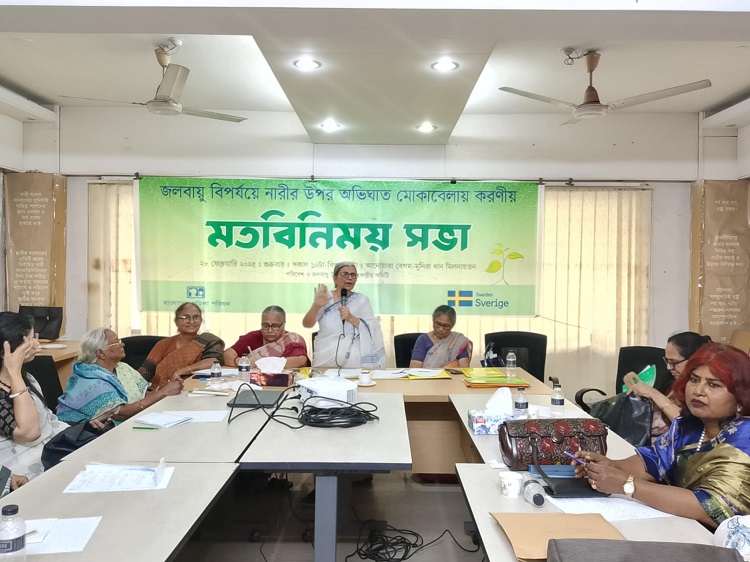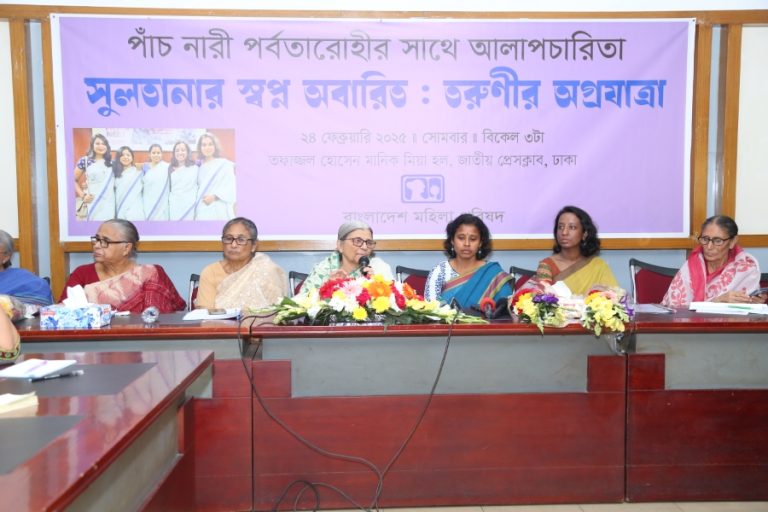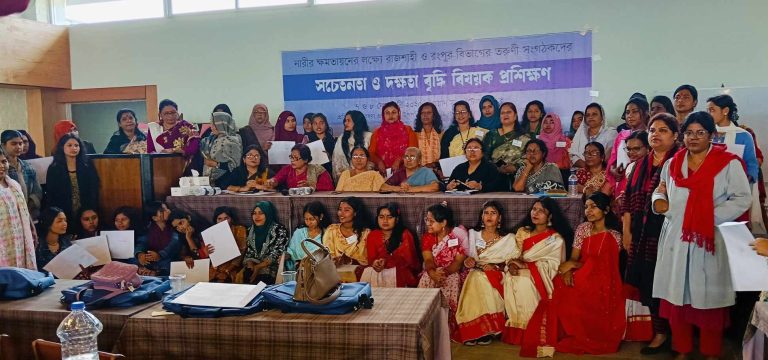On February 1, 2025, at 3:00 PM, Bangladesh Mahila Parishad (BMP) hosted a discussion meeting at the Anwara Begum Munira Khan Auditorium in their central office. The focus was on evaluating the implementation of the High Court’s ban on the two-finger test. The meeting was chaired by Dr. Fauzia Moslem, President of the central committee of Bangladesh Mahila Parishad, with a welcome speech delivered by General Secretary, Maleka Banu. The conceptual paper was presented by Joint General Secretary Advocate Masuda Rehana Begum. Esteemed discussants included Dr. Rowshan Ara Begum, Vice-President of BMP, Dr. Ruchira Tabassum, Emeritus Scientist at ICDDR,B, Nahida Akhter, Senior Research Investigator specializing in Gender Equality at ICDDR,B, and Public Health Specialist, Dr. Rahat Ara Noor.
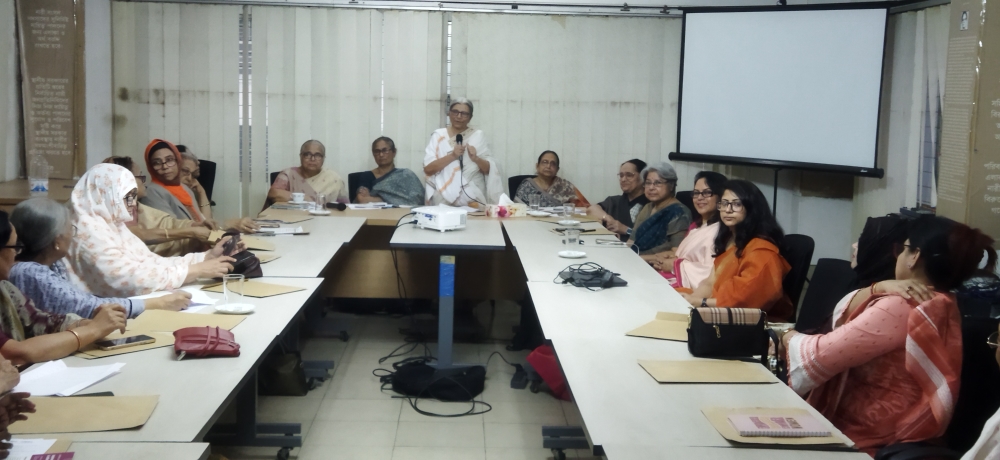
Dr. Fauzia Moslem, President of BMP, led the meeting and called for joint effort from government and non-government organizations to effectively enforce the ban. She stressed the importance of awareness and professionalism among those who provide services to the victims.
Advocate Masuda Rehana Begum shared a paper that pointed out how many medical and legal professionals are unaware of the High Court’s decision to ban this test. Although the Ministry of Health informed medical colleges and forensic departments about the ban, there hasn’t been enough follow-up to ensure adherence. Advocate Begum suggested 14 specific actions that could help improve the situation.
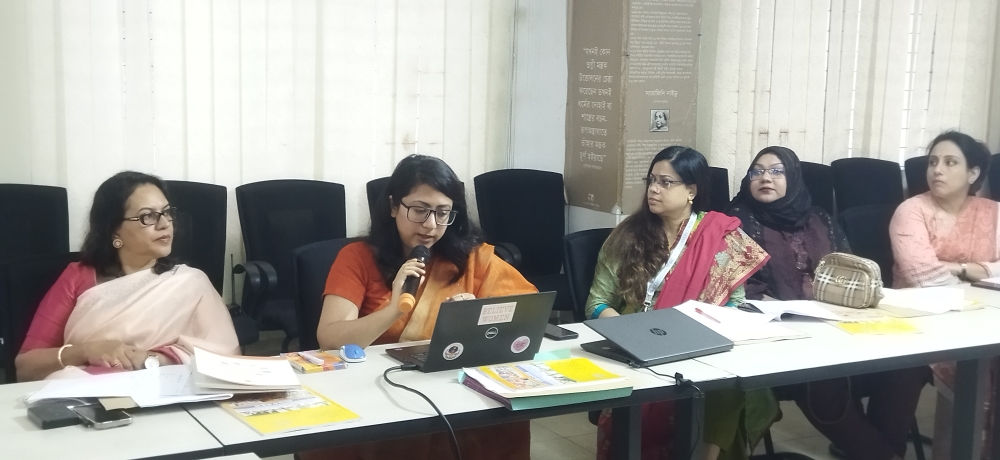
Dr. Rowshan Ara Begum, Vice-President of BMP, highlighted the need for doctors, especially in rural areas, to be aware of and implement the court’s ruling together. Other experts like Dr. Ruchira Tabassum and Nahida Akhter from ICDDR,B noted that many doctors and law enforcement officers outside of major cities like Dhaka still do not know about the ban.
Public Health Specialist Dr. Rahat Ara Noor emphasized making sure the medical exams are done with respect and privacy, and to stop any practices that could harm the victims further.
Maleka Banu, the General Secretary of BMP, talked about the existing challenges in enforcing women-friendly laws, even though many have been set up. She stated that banning the two-finger test is a big win for women’s rights, and it’s crucial to put the law into practice to help victims of violence.
In her closing remarks, Dr. Fauzia Moslem underscored the importance of coordinated efforts from governmental, non-governmental, and service agencies to implement the court order effectively. She called for increased awareness and professionalism, coupled with a humanitarian approach from service providers.
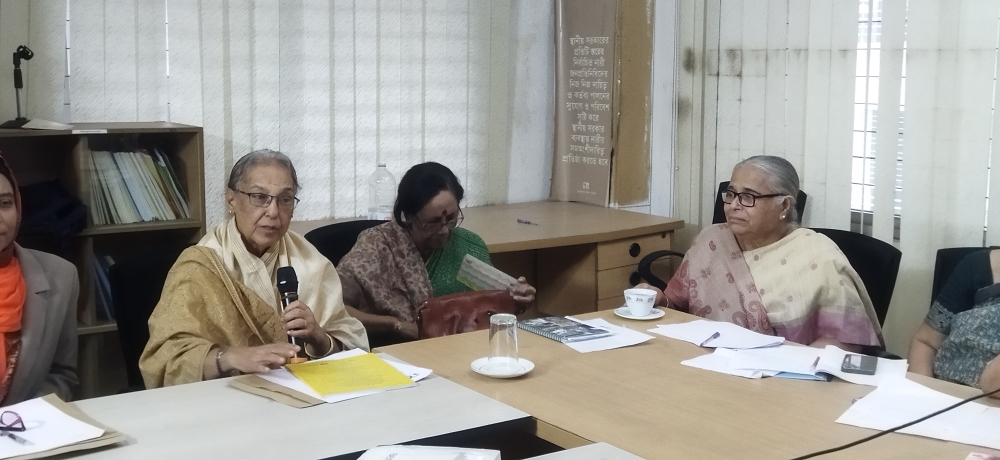
The meeting also included insights from other professionals in health and law, who discussed ways to tackle these challenges. They agreed that cooperation across different sectors is key to making positive changes.
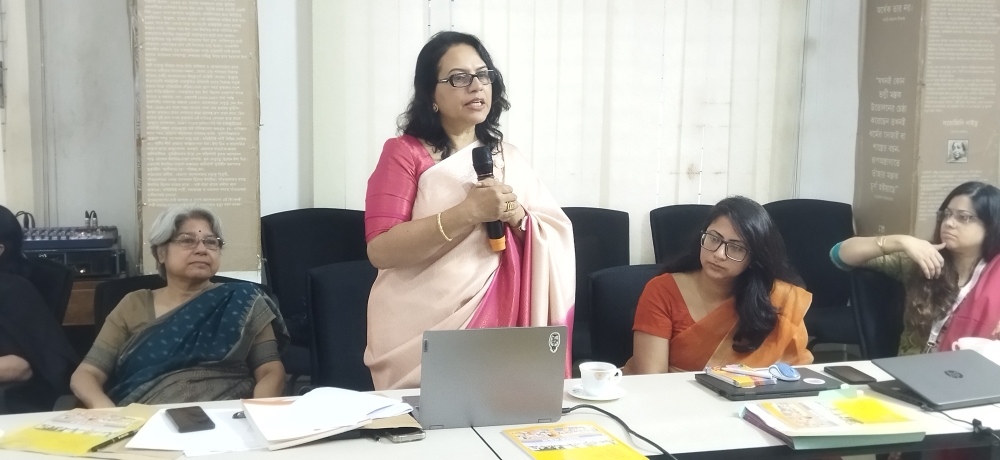
The session was attended by approximately 50 participants, including organization members, lawyers, and representatives from various agencies. The meeting highlighted the challenges still faced in implementing the court’s ban on the two-finger test nationwide and discussed strategies to enhance understanding and application among healthcare and legal professionals. The session was moderated by Health Subcommittee Secretary Dr. Dipa Islam.

